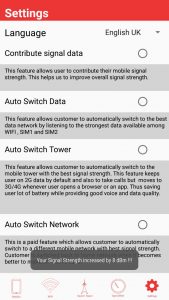Backed by a growing economy, India’s mobile subscriber growth has touched 1.01 billion in the year 2019. However, call drops still remain a significant concern for the telecom industry and telecom ministry alike.
Taking cognizance of the rising problem of call drops, the Indian telecom minister, Mr. Ravi Shankar Prasad recently mentioned in the Indian Parliament that telecom service providers (TSPs) need to make sure that the call drop rates on the TSP mobile networks should remain in accordance to the benchmarks that have been set by the telecom regulator Trai.
“Call drop in a mobile network can happen due to many reasons including characteristics of radio propagation for wireless communications, non-availability of sites due to acquisition problems, sealing of sites by local authorities due to fear of electromagnetic fields from mobile radiations, etc.,” Mr. Prasad said in a written reply in Lok Sabha.
According to Trai regulations on the quality of telecom service, call drop rates in 90 percent of mobile cell sites should be less than 2% for 90% of days during the assessment period in a telecom circle.
However, it is a well-known fact that the actual call rate drops are way higher than TRAI regulations. Call Drops directly impact the primary offering of a Telecom Service Provider. It also has a significant influence on the perception of the customer on the Quality of Service offered by these Telecom Service Providers.
Neither the Indian Telecom Ministry nor any of the telecom providers have any solution for this. The only alternative to call-drops that the Indian caller has is to change the mobile service provider every time, which doesn’t seem a practical solution.
The problem of call-drops is prevalent across all major telecom operators in India, including Airtel, Jio, Vodafone, Idea, BSNL and others. None of the operators can claim that they have a robust method of handling the problem of call-drops. MyTRING can be an effective solution for these telecom operators to tackle this issue.
In this present scenario, the platform “MyTRING, developed by Mr. Vikas Gadoo, seems to present a viable option to solve the call drop problem that India is currently facing.
MYTRING is a solution based on the logic of choosing the best network in real-time in a particular location, thereby giving the option to the subscriber to Auto switch data, tower, and network. This useful feature allows the subscriber to get the best out of the telecom network available in the area, thereby ensuring 0 or negligible call drops. MYTRING switches the caller and receiver on the best telecom network in real-time in that location, and provides a seamless user experience with clear voice and data.
This solution enables the telecom operators to collaborate and offer a seamless experience of the best call experience to the caller and receiver. If calls are regularly getting cut, customer satisfaction takes a hit. MyTRING will ensure that customers get a stable connection across multiple locations and areas. Geolocalized temporary network failures will become minimal, thanks to MyTRING.
MyTRING call drop solution is based on the existing concept of “Software Defined Networking” (SDN). Software-defined networking (SDN) technology is a modern approach to networking that eliminates the complex and static nature of legacy distributed network architectures use of a standards-based software abstraction between the network control plane and underlying data forwarding plane, including both physical and virtual devices.
MyTRING offers numerous potential benefits to Indian telecom operators and subscribers. This technology will empower the end-user to choose the best network in the area without changing the SIM card or moving to a different operator. This solution is a useful tool to handle customer’s misery of call drops.
The Telecom Ministry can work together with the various telecom operators and work on a collaborative model to implement the MyTRING solution. Once the collaboration models are in place, operators will be able to offer this solution to their subscribers across India.
“Call drop is one menace which no previous governments have been able to resolve. A step in this direction will assure citizens that Government is working real-time to resolve the issue of call drops,” says Vikas Gadoo, who has developed this technology.
Vikas is presently based in Australia, he completed his Bachelors of Engineering in the year 2006, and he has an experience of 14 years in telecom. He is currently working for a telecom company in Australia.
The patent for this platform has been filed and published in Indian Patent Office under the Invention Title: SYSTEM AND METHOD FOR SELECTION OF MOBILE NETWORK. The patent status is presently marked as Published/Awaiting Examination